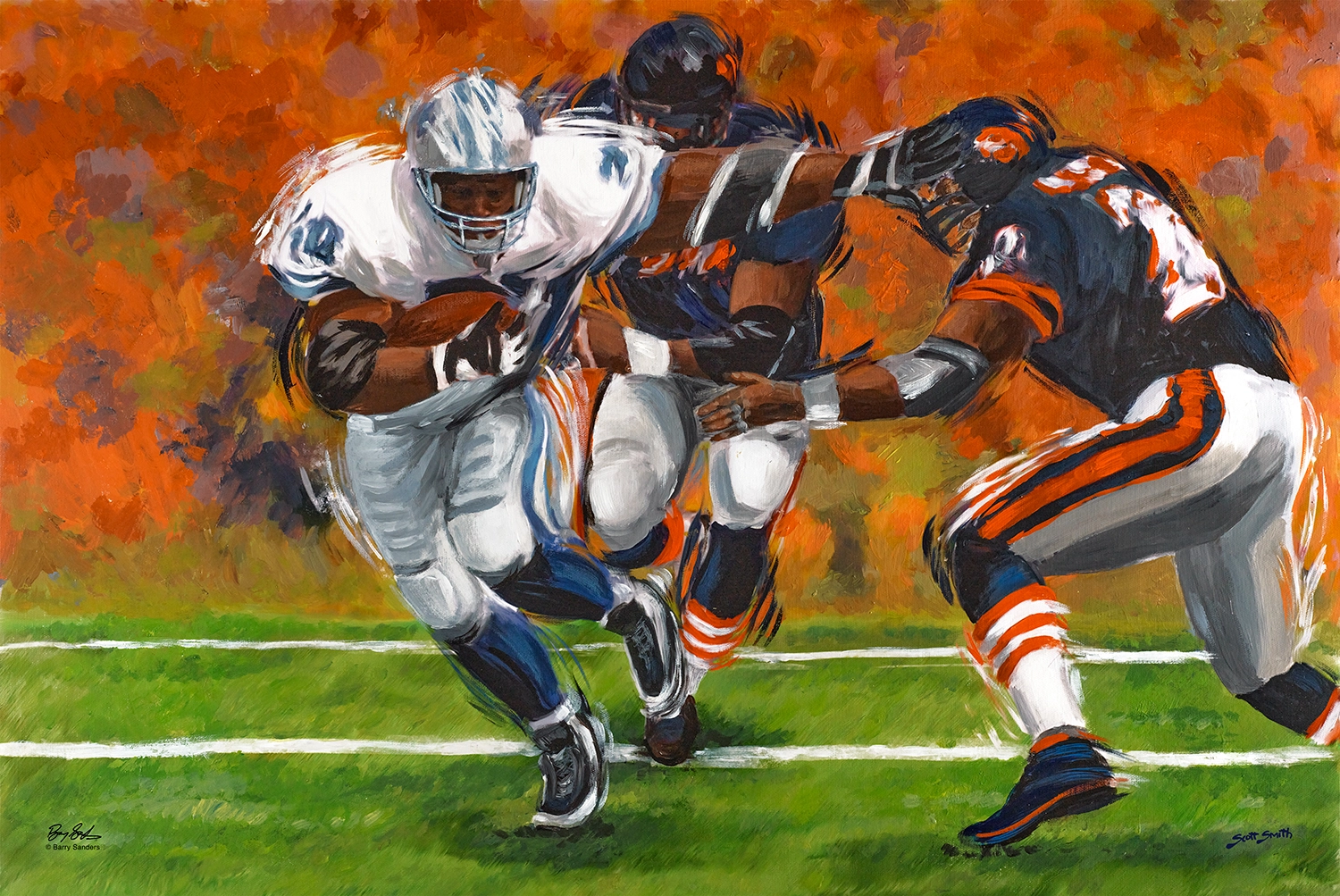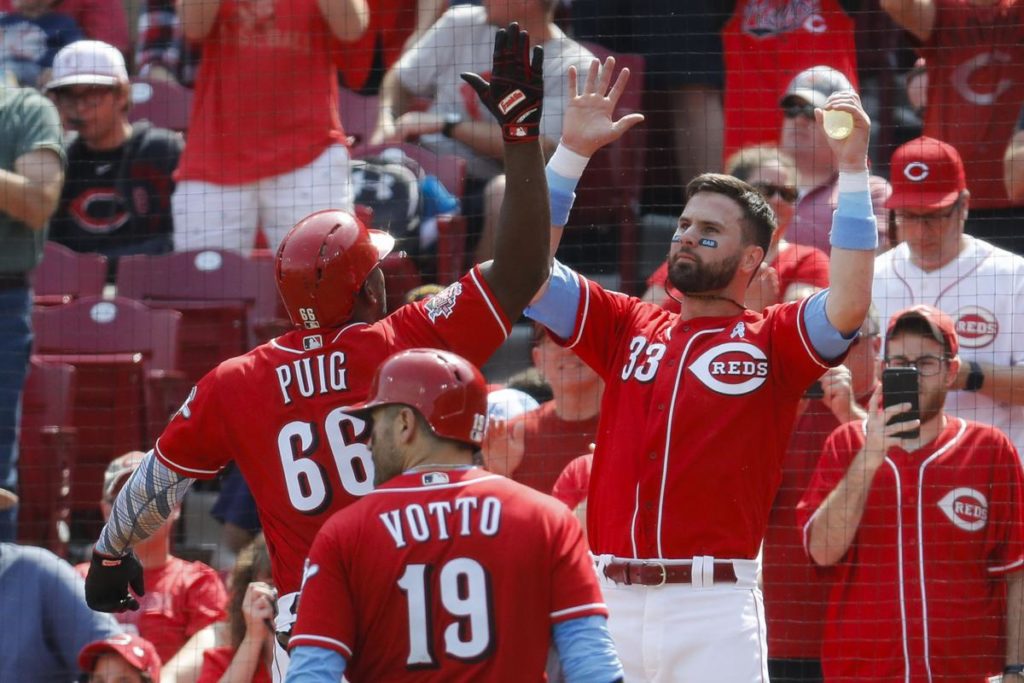
The world of baseball mourns the passing of Davey Johnson, a figure whose remarkable career spanned decades as both an All-Star second baseman and a revered manager. Johnson, who guided the New York Mets to their dramatic 1986 World Series victory, died Friday at the age of 82 after a long illness. His wife, Susan Johnson, informed longtime Mets public relations representative Jay Horwitz of his passing, which occurred at a hospital in Sarasota, Florida.
Beyond the gleaming trophies and division titles, Johnson embodied a rare blend of old-school baseball instincts and an avant-garde statistical mind. He was a man who commanded respect not through bluster, but through a quiet confidence and an unwavering belief in his players, shaping the destinies of multiple franchises and leaving an indelible mark on the sport. His journey from a slick-fielding infielder to one of the game’s premier skippers is a testament to his intellect, leadership, and a deep, abiding love for baseball.
In an era where managerial styles often leaned towards rigid control, Johnson carved out a unique space, known for empowering his players while simultaneously delivering consistent excellence. This article will delve into the multifaceted career of Davey Johnson, exploring the key moments and defining characteristics that solidified his status as a swashbuckling manager and a true visionary, one who sparked both the New York Mets and the Washington Nationals to unprecedented heights.

1. **Early Life and Illustrious Playing Career**David Allen Johnson was born on January 30, 1943, in Orlando, Florida, into a military family, and was subsequently raised in San Antonio, Texas. His formative years saw him develop a profound connection with baseball, a passion that would eventually lead him to play at Texas A&M University. It was from there that his professional journey began, as he signed with the Baltimore Orioles in 1962, embarking on a path that would see him become a significant presence in Major League Baseball.
Johnson made his Major League Baseball debut in 1965, marking the start of a distinguished 13-year playing career. He spent much of his initial eight seasons as the Orioles’ starting second baseman, becoming a crucial component of one of baseball’s most dominant teams. During this period, he contributed significantly to the Orioles’ two World Series titles, first in 1966 and again in 1970, cementing his reputation as a player capable of performing on baseball’s biggest stage.
As a player, Johnson was not only a World Series champion but also an accomplished individual talent. He was selected for the All-Star team four times and earned three Gold Glove awards, a testament to his exceptional defensive prowess at second base. His slick fielding was a hallmark of the dominant Orioles teams of the late 1960s and early 1970s, showcasing a rare combination of skill and consistency that earned him widespread admiration throughout the league.
Following his successful tenure with the Orioles, Johnson was traded to Atlanta in November 1972 as part of a six-player deal. In his very first season with the Braves in 1973, he astonished the baseball world by slugging a career-high 43 home runs, setting a new single-season record for a second baseman. This remarkable power surge was particularly noteworthy given that he had never hit more than 18 home runs in any previous season and never topped 15 after that, making his 1973 performance an extraordinary outlier in an otherwise solid offensive career. His 43 home runs that year made him part of the first trio of teammates in major league history, alongside Darrell Evans (41) and Henry Aaron (40), to each reach 40 home runs in the same season, highlighting a truly special offensive campaign.
Johnson’s playing career also included stints with the Philadelphia Phillies and Chicago Cubs, before concluding after the 1978 season. Before his final MLB years, he even embarked on a unique two-year stint in Japan, playing for NPB’s Tokyo Giants from 1975-1976. This made him the first non-Japanese player to suit up for the esteemed Tokyo Giants, further underscoring his diverse experiences and willingness to embrace new challenges within the sport.
Read more about: Trailblazers & Triumphs: Unpacking the Incredible Legacies of 14 Black Female Icons Over 70
2. **The Genesis of a Manager: Taking Over the Mets in 1984**After a decorated playing career, Davey Johnson transitioned to managing, taking the helm of the New York Mets in 1984, his first managerial job at the Major League level. At the time of his appointment, the Mets were a franchise in need of revitalization, having not won a pennant since 1973 and concluding the previous year with a 68–94 record. Johnson was in his early 40s when he embraced this challenge, a period that would soon define his lasting legacy in baseball.
Johnson’s impact was immediate and profound, transforming the Mets into a perennial winner under his leadership. He achieved an unprecedented run, becoming the first National League manager to win at least 90 games in each of his first five seasons, a remarkable feat that underscored his exceptional ability to turn a struggling team into a consistent contender. This instant success laid the groundwork for the team’s ascension to elite status within the league.
His tenure marked a pivotal era for the franchise, where his “mustachioed, opinionated” persona became synonymous with the team’s emerging identity. Johnson’s leadership style, characterized by a quiet confidence, played a crucial role in cultivating a winning culture. He instilled a belief in his team that allowed them to flourish, setting the stage for one of the most memorable periods in Mets history and firmly establishing himself as a formidable presence in the dugout.

3. **The Immortal 1986 New York Mets and Their World Series Triumph**The pinnacle of Davey Johnson’s managerial career undoubtedly arrived with the 1986 New York Mets, a team that became an enduring symbol of late 1980s baseball. This squad was renowned for its unique blend of “swaggering, character-filled” personalities, a group that Johnson masterfully steered to a historic World Series championship. Their dominance was reflected in a staggering 108 regular-season victories, a record for the franchise that stood as the most by any team from 1976-97.
The 1986 Mets boasted a roster brimming with star power and memorable figures, including the formidable talents of Darryl Strawberry, the charismatic Keith Hernandez, the electric Dwight Gooden, and the veteran leadership of Gary Carter. Johnson’s ability to manage such a dynamic and sometimes volatile collection of individuals was a testament to his exceptional leadership skills. He fostered an environment where these talents could coalesce into an unstoppable force, demonstrating his profound understanding of team dynamics and individual temperaments.
The climax of this extraordinary season was an epic seven-game World Series battle against the Boston Red Sox, a series etched into baseball lore for its dramatic twists and turns. The Mets, under Johnson’s composed guidance, achieved an implausible comeback from the brink of defeat in Game 6, culminating in Mookie Wilson’s famous ground ball through Bill Buckner’s legs. When the winning run scored in that pivotal game, Johnson was reportedly right in the middle of the celebratory “white-and-blue swirl” near home plate, arriving before many of his players, a vivid image of his deep immersion and emotional connection to his team’s triumph.

4. **A Philosophy of Empowerment: Trusting Players to Be Men**Davey Johnson’s managerial philosophy was distinct, a departure from more rigid approaches often seen in baseball. He famously articulated his player-centric methodology to writer Bob Klapisch for the 1993 book *The Worst Team Money Can Buy*, stating, “I treated my players like men. As long as they won for me on the field, I didn’t give a flying **** what they did otherwise.” This quote encapsulates his belief in allowing players autonomy, fostering an environment of trust and mutual respect rather than strict control.
This unique approach resonated deeply with his players, particularly those on the famously boisterous 1986 Mets. Darryl Strawberry, a key figure on that championship team, reflected on Johnson’s style in a statement: “Davey Johnson was the greatest manager I ever played for. He let us do our own thing.” This sentiment was echoed by others, highlighting Johnson’s profound ability to empower his players to express themselves fully, both on and off the field, believing that genuine talent thrived when unburdened by excessive micromanagement.
Johnson’s leadership was characterized by “his ability to empower players to express themselves while maintaining a strong commitment to excellence.” He understood that a team’s success stemmed not just from talent, but from the collective confidence and freedom of its individuals. This delicate balance allowed his teams, especially the 1986 Mets, to develop a unique swagger and an unapologetic brilliance, making them a reflection of their manager’s bold and unconventional, yet highly effective, approach to the game.
Read more about: Gen Z’s New Money Playbook: Why They’re Betting on Collectibles While Crushing Retirement Savings

5. **Pioneering Analytics: The “Computer” Mind of a Baseball Strategist**Long before the advent of modern analytics became commonplace in baseball, Davey Johnson was already a fervent proponent of data-driven strategies, earning him a reputation as one of the game’s most intelligent tacticians. His keen interest in numbers was rooted in his academic pursuits; he earned a mathematics degree from Trinity University while managing the Nationals in 2012, decades after his initial foray into using data to optimize baseball performance. This intellectual curiosity underscored his innovative approach to the sport.
As early as 1969, while still an active player for the Baltimore Orioles, Johnson made headlines for employing a graduate computers course at Johns Hopkins University to devise his team’s optimal batting order. He developed a program he called “Optimizing the Orioles Lineup,” which he would run through the computer. He famously recounted his findings in 1995, stating, “I found out that if I hit second instead of seventh, we’d score 50 or 60 more runs and that would translate into a few more wins. I gave it to him, and it went right into the garbage can,” referring to Orioles manager Earl Weaver, who, despite his own progressive leanings, wasn’t quite ready to fully embrace an infielder’s data-driven recommendations.
Johnson’s analytical mind extended beyond lineup optimization to pitching theory. Jim Palmer, a Hall of Famer and former Orioles ace, recalled an instance when Johnson, then playing second base, ran to the mound to offer advice to Dave McNally. Johnson questioned if McNally had “ever heard of variable chance deviation theory,” suggesting that by simply aiming for the middle of the plate, the movement of the baseball would work in his favor more effectively than trying to nick the corners. This anecdote highlights Johnson’s prescient understanding of pitching mechanics and probability, cementing his status as a “precursor to modern-day analytics and pitching theory,” as Palmer aptly described him. Darryl Strawberry further emphasized this, stating, “What they play off today is a computer, analytics. Davey was the computer.”

6. **Mets’ Continued Success and Eventual Departure**Following their spectacular World Series victory in 1986, Davey Johnson’s Mets continued their dominant run, maintaining their status as one of baseball’s elite teams. In 1988, they achieved another formidable season, winning 100 games and securing another division title, demonstrating that their championship was not an isolated event but a testament to Johnson’s consistent leadership and the team’s sustained talent. However, their playoff aspirations were cut short that year when they lost in the National League Championship Series to the Los Angeles Dodgers, preventing a repeat of their ultimate triumph.
Despite this continued success on the field, tensions began to mount behind the scenes. Johnson increasingly found himself embroiled in a feud with general manager Frank Cashen, a clash of personalities and philosophies that ultimately contributed to his departure. These internal frictions, coupled with a slow start to the 1990 season, led to Johnson’s dismissal early in that year, after just 42 games. The decision marked an abrupt end to what had been a golden era for the New York Mets under his stewardship.
Even years after his departure, Davey Johnson’s impact on the New York Mets remained undeniable and deeply rooted in the franchise’s history. His 595 wins with the club stand as the most by any manager in Mets history, a record that underscores the significant success he brought to the team during his tenure. He was rightfully inducted into the Mets Hall of Fame in 2010, ensuring his legacy as the architect of their greatest triumph would forever be etched in the annals of the club, despite the acrimonious end to his time in New York.
Read more about: The Rifleman’s Final Chapter: Tracing Chuck Connors’ Life, Legacy, and Cause of Death

7. **The Journeyman Phase: Revitalizing the Cincinnati Reds**After his tenure with the Mets concluded, Davey Johnson embarked on what would become a pattern in his managerial career: inheriting promising young clubs and swiftly transforming them into winners. His first stop in this “journeyman phase” was with the Cincinnati Reds, where he took over 44 games into the 1993 season. The team was in need of direction, and Johnson’s leadership once again proved to be the catalyst for a rapid turnaround, demonstrating his consistent ability to instill a winning mentality wherever he went.
Under Johnson’s guidance, the Reds quickly became a first-place club, showcasing his profound influence in a remarkably short period. In the strike-shortened 1994 season, the team was a formidable force, and the following year, in 1995, Johnson led Cincinnati to a division title, further solidifying his reputation as a manager capable of extracting peak performance from his roster. This rapid success in Cincinnati highlighted his strategic acumen and his knack for developing young talent, reaffirming his status as one of the game’s premier leaders.
However, Johnson’s tenure in Cincinnati ended under unusual circumstances. Despite his on-field success, he was reportedly a “lame duck” at the start of the 1995 season, with Reds owner Marge Schott already preparing to hand the managerial reins to Ray Knight—ironically, the man who scored the winning run in Game 6 of the 1986 World Series for Johnson’s Mets—once the season concluded. This situation underscores the often-complex dynamics between a manager and ownership, even when on-field results are stellar. Jim Bowden, Cincinnati’s general manager that year, lauded Johnson as “one of the best managers I ever had the privilege of working with in my career,” praising his insights into bullpen construction, pitcher development, and coaching staff assembly.

8. **Returning to Baltimore: Managerial Triumph with the Orioles**After his departure from Cincinnati, Davey Johnson made a significant return to the Baltimore Orioles in 1996, the team where he had previously achieved two World Series titles as a player. This homecoming marked another chapter in his pattern of revitalizing promising young clubs. The Orioles, a franchise with a rich history, looked to Johnson to restore their competitive edge.
Johnson’s tenure in Baltimore yielded immediate success. In his inaugural season, he guided the Orioles to their first postseason berth in 13 years, re-energizing the team and its fan base. The following year, 1997, saw the Orioles secure the American League’s best record, a performance that earned Johnson his first Manager of the Year award. Both seasons, however, concluded with playoff defeats, denying him another championship.
A defining moment during this period was Johnson’s decision to move Cal Ripken Jr. from shortstop to third base. This move, made with his characteristic strategic foresight, demonstrated his willingness to make difficult choices for team optimization. Despite the on-field triumphs, Johnson’s time in Baltimore ended abruptly due to a feud with owner Peter Angelos, leading to his resignation just hours after receiving his Manager of the Year honors.

9. **Guiding the Washington Nationals to New Heights**Following a brief stint managing the Los Angeles Dodgers from 1999 to 2000, Davey Johnson embarked on his final Major League managerial role with the Washington Nationals from 2011 to 2013. He took on a team eager to forge a winning identity in the nation’s capital. Johnson, with his seasoned leadership, once again proved to be the catalyst for a significant turnaround.
In 2012, Johnson achieved another milestone by steering the Nationals to their first postseason appearance since the franchise’s relocation to Washington. This triumphant season culminated in his second Manager of the Year award, a testament to his enduring skill in developing talent and constructing a formidable team. The Nationals won the NL East under his composed guidance.
Players and ownership alike lauded Johnson’s impact in Washington. Ryan Zimmerman, a prominent Nationals player, affirmed, “He knew how to get the best out of everyone — on and off the field.” Mark Lerner, the Nationals owner, echoed this sentiment, calling Johnson a “world-class manager” and emphasizing his “incredible person” qualities. These tributes underscored the deep respect and affection Johnson fostered.

10. **International Coaching Ventures with Team USA**Davey Johnson’s commitment to baseball extended globally, as evidenced by his three separate stints managing Team USA in international competition. These roles showcased his willingness to contribute his extensive experience to national efforts, further solidifying his diverse engagement with the sport. It was a testament to his deep-seated passion for baseball.
His international coaching journey began with a seventh-place finish at the 2005 Baseball World Cup, a challenging initiation into global tournaments. However, Johnson quickly found success, leading Team USA to a bronze medal at the 2008 Summer Olympics. This achievement highlighted his ability to adapt his strategic approach to high-stakes, short-format international play.
Johnson’s final international assignment saw him manage Team USA to a fourth-place finish at the 2009 World Baseball Classic. These experiences provided unique opportunities to engage with the sport from a global perspective, enriching his career and demonstrating his unwavering dedication to baseball’s worldwide development.
11. **A Legacy of Wins and Strategic Acumen**Over his 17 seasons as a Major League manager, Davey Johnson compiled an impressive 1,372 wins against 1,071 losses, translating to a .562 winning percentage. This record places him among the elite, ranking 10th all-time among managers with over 1,000 victories. He also stands as one of only 15 big league skippers to retire more than 300 games above .500, a rare mark of sustained success.
Johnson’s distinction is further highlighted by his two Manager of the Year awards, earned in different leagues with the Orioles in 1997 and the Nationals in 2012. These accolades signify his consistent ability to adapt and excel across varied organizational contexts. His induction into the Mets Hall of Fame in 2010 cemented his status as a legendary figure in the team’s history.
Beyond the numerical achievements, Johnson was a visionary in baseball strategy. He was known as one of the game’s most intelligent tacticians, embracing data-driven information long before its widespread adoption. Hall of Famer Jim Palmer recognized him as a “precursor to modern-day analytics and pitching theory,” a testament to his forward-thinking approach.
Darryl Strawberry vividly captured this aspect of Johnson, declaring, “What they play off today is a computer, analytics. Davey was the computer.” Johnson’s profound understanding of statistics and his ability to integrate them with player psychology profoundly influenced the game, carving out a unique and enduring legacy as a strategic innovator.
Read more about: The Ultimate Hand: 14 Celebrities Who Are Surprisingly Good at Poker (And Who They Play With!)

12. **Unpacking Johnson’s Enduring Personal Attributes**Davey Johnson’s leadership was characterized by a distinct blend of quiet confidence and unwavering belief in his players. He fostered an environment of trust and autonomy, famously stating, “I treated my players like men. As long as they won for me on the field, I didn’t give a flying **** what they did otherwise.” This philosophy empowered his teams and solidified deep loyalty.
His intellectual curiosity extended beyond the dugout; he earned a mathematics degree while managing the Nationals, reflecting a lifelong passion for problem-solving. Johnson humbly articulated this drive, telling the Hall of Fame’s Bill Francis, “I never thought I was smart. But I love to figure out problems. Through my stubbornness and relentlessness, I get to the end.”
Colleagues consistently lauded Johnson’s character. Former Nationals general manager Mike Rizzo regarded him as “a good man, close friend and a mentor,” while Cincinnati’s Jim Bowden praised him as “a brilliant, kind leader and teammate.” These tributes highlight his compassionate and insightful leadership, which transcended the conventional boundaries of a manager’s role.
Players remembered his ability to simplify the game. Mike Bordick noted, “He was so easy to play for. He just knew the right buttons to push.” Ryan Zimmerman underscored Johnson’s human qualities, stating he was “even better human than he was a baseball man.” These personal attributes formed the bedrock of his successful and beloved career.
13. **A Wave of Tributes: Remembering a Baseball Icon**The news of Davey Johnson’s passing at 82 prompted a widespread outpouring of tributes from across the baseball community, reflecting the profound impact he had on countless individuals. His wife, Susan Johnson, confirmed his death to longtime Mets public relations representative Jay Horwitz, initiating a wave of heartfelt acknowledgments for his remarkable life and career.
Mets owners Steve and Alex Cohen expressed deep sadness, highlighting Johnson’s 595 wins as the most in franchise history and crediting him for leading the 1986 team to a World Series championship. Their statement underscored his quiet confidence and unwavering belief in his players, qualities that defined his legendary tenure in New York.
Darryl Strawberry, a key figure from the 1986 Mets, delivered an emotional testament to Johnson’s leadership. He praised Johnson as “the greatest manager I ever played for,” emphasizing his ability to empower players. Strawberry noted, “His ability to empower players to express themselves while maintaining a strong commitment to excellence was truly inspiring. Davey’s legacy will forever be etched in the hearts of fans and players alike.”
Former colleagues, including Hall of Famer Jim Palmer, shared personal sentiments, with Palmer writing, “I just lost a friend, teammate and confidant.” Mike Rizzo called Johnson “A Hall of Fame caliber manager with a baseball mind ahead of his time,” acknowledging his intellectual contributions to the sport. These messages collectively painted a picture of a leader deeply respected and genuinely loved.
Mark Lerner, Nationals owner, called Johnson a “world-class manager” and, crucially, “an incredible person.” Ryan Zimmerman’s tribute, stating his career “would not have been the same without my years with him,” perfectly encapsulated Johnson’s role as a mentor. The volume and sincerity of these tributes confirm Davey Johnson’s indelible legacy, both as a baseball luminary and a cherished human being.
14. **The Indelible Mark: A Manager Ahead of His Time**Davey Johnson’s career represents a unique confluence of old-school baseball instincts and groundbreaking intellectual curiosity, leaving an indelible mark on the sport. He was a manager who consistently led teams to victory, often turning around franchises with his distinctive blend of player empowerment and analytical prowess. His strategic foresight was truly ahead of its time.
His consistent success across multiple organizations, from the iconic 1986 Mets to the revitalized Orioles and the ascending Nationals, underscored his adaptability and profound understanding of team dynamics. Johnson’s capacity to guide diverse personalities and navigate complex ownership challenges while fostering a winning culture cemented his reputation as a transformative leader.
Johnson’s pioneering use of data and statistics, particularly his early efforts in lineup optimization and pitching theory, distinguished him as a true innovator. This intellectual approach, which Jim Palmer described as “a precursor to modern-day analytics,” allowed his teams to gain a competitive edge long before such methods became commonplace.
Ultimately, Johnson’s legacy is defined by his courage to challenge conventional wisdom, his deep respect for his players, and his relentless pursuit of excellence. He was a man who embraced both the art and science of baseball, leaving behind a philosophy of leadership that championed intelligence, autonomy, and unwavering commitment. His influence will undoubtedly continue to inspire future generations in the game.
As the baseball world bids farewell to Davey Johnson, his multifaceted legacy shines brightly, serving as a powerful testament to a life dedicated to the game. More than a manager with an exceptional winning record, he was a visionary who dared to innovate, a leader who empowered, and a mentor who deeply touched the lives of those around him. His unique blend of intellect, courage, and genuine human connection ensured that he was not merely a part of baseball history, but a profound architect of its evolution. Davey Johnson’s indelible mark will continue to inspire, reminding us of the enduring power of brilliant leadership and an unwavering love for the game.






